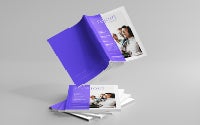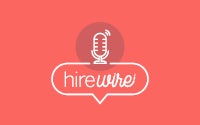How to maximise the first 5 minutes of an interview

The first few moments of your interview can have a real impact on how well the rest of it goes. Here are five ways to start strong:
1. Remember the interview starts as soon as you leave the house
The interview starts long before the first handshake. You never know who you might bump into as you get off your train, or enter the company’s building – for all you know, your interviewer could be in the same coffee shop queue as you. So make sure you project a friendly, confident, professional air from the moment you set off.
Arrive early, give yourself time to have a comfort break and make sure you’re hydrated. Make conversation with the receptionist, switch off your phone and take in your surroundings – you might notice something that will make a useful small-talk topic later. Don’t try and cram in any last-minute facts – you want to come across as calm and organised, not flustered and under-prepared.
2. Treat everyone you meet as your interviewer
Make sure that you’re polite and friendly to everyone you come across in the interview process. From greeting the receptionist, to the people you share a lift with, to walking through an open-plan office to reach your meeting-room… These are all touchpoints with your potential future employer, and co-workers will often share their impressions of visitors afterwards, so you want everyone you meet to see you in as positive a light as possible.
3. Create a strong first impression
First impressions count, and non-verbal cues matter even more than verbal ones. So in those first few minutes, it’s all about smiling confidently, shaking hands firmly, making eye contact and generally looking as if you’re glad to be there and you want the job. Lean in slightly, widen your eyebrows slightly, and wait to be invited to sit down. In everything you do, project an attitude of energy, enthusiasm and interest.
Clothes-wise, try to match your dress style to that of the company you’re meeting. Six in ten managers say an interviewee’s dress sense has a big impact on their employability (source: monster.co.uk survey). You should be able to get a good idea of the company’s typical dress code through its website and social media, especially any content about its working culture, and your recruiter can advise you too. You want to project some personality and charisma, but you also want to come across as a good fit, so if in doubt always err on the formal side.
4. Be ready for the small talk
Small talk is a way for people to build rapport and affinity, and start to generate that elusive, intangible quality of ‘chemistry’ that characterises all effective business relationships.
So as part of your interview prep, it’s a good idea to think ahead to some likely topics that may arise, to help keep the conversation flowing smoothly. The key is to come up with topics where you have a shared interest, so that you’re able to both ask and answer credible questions.
For example, if you’re a sports fan and you spot signs that your interviewer is too, perhaps you could ask a suitable question that you’ve also got an interesting answer to (‘Do you ever get to the matches?’ ‘Who’s going to take home the title this year?’ etc).
Keep abreast of current events. For example, has your potential employer been in the news recently? Or could you ask about the potential impact on the company of a recent development, such falling share prices or the latest election results? In each case, make sure you have an interesting thought of your own to contribute too.
5. Establish your key messages upfront
Politicians coached in handling the media are always advised to have a maximum of three key messages to get across, which they should stick to and repeat throughout any interview.
Similarly, it’s a good idea to have two or three key points that you want to make about what you have to offer and what you’re looking for – for example, ‘I’m ready for the challenge of managing a team’, ‘I combine compliance experience with technical expertise’, ‘in my career, I’ve developed an extensive talent pool of candidates.’
These are the three key points that you want your interviewer to remember about you. So try and work them in naturally whenever you can, even in the first few minutes. It’s also important to have a ready answer for some of the most common questions that come up early on – such as ‘Tell me why you’re interested in this role’ and ‘What’s your understanding of what this job involves?’
Are you a recruitment professional ready for your next move? Check out the opportunities available at Resource Solutions.
Share this:









